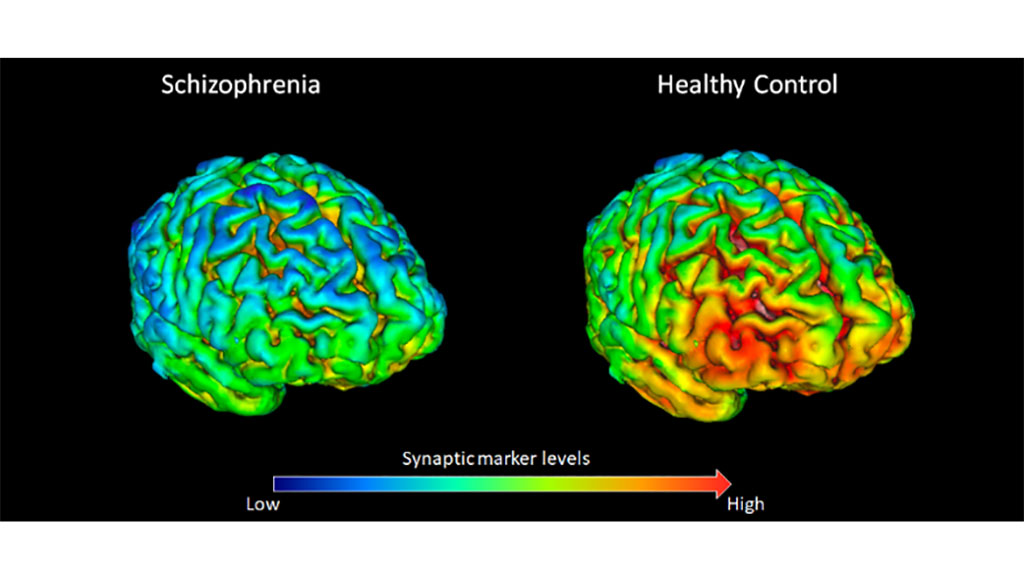Dysfunctional Neural Synapses Could Trigger Schizophrenia
By MedImaging International staff writers
Posted on 20 Jan 2020
A new positron emission tomography (PET) study suggests that reduced levels of synaptic vesicle glycoprotein 2A (SV2A) could underlie the cognitive difficulties seen in schizophrenia.Posted on 20 Jan 2020
Researchers at Imperial College London (Imperial; United Kingdom), Invicro Imaging Services (London, United Kingdom), King’s College London (KCL; United Kingdom), and other institutions, performed PET scans in 18 adults suffering from schizophrenia at the London Institute of Medical Sciences (LMS; United Kingdom) and compared them to 18 people without schizophrenia. The researchers used a tracer that binds to SV2A, which has been shown to be a good marker of the density of synaptic nerve endings in the brain.

Image: Protein deficiency in neural synapses could explain schizophrenia (Photo courtesy of KCL)
The results showed significant group and group-by-region interaction effects on volume of distribution (VT), which was significantly lower in the frontal and anterior cingulate cortices in schizophrenia with large effect sizes, but there was no significant difference in the hippocampus. The researchers also investigated the effects of antipsychotic drug administration on SV2A levels in Sprague-Dawley rats, but found no significant effects on any measure. According to the researchers, the findings indicate lower SV2A levels in schizophrenia, and that antipsychotic drugs are unlikely to account for them. The study was published on January 14, 2020, in Nature Communications.
“Our lab at the MRC London Institute of Medical Sciences is one of the few places in the world with this new tracer. We've been able for the first time to show there are lower levels of a synaptic protein in people with schizophrenia,” said lead author Professor Oliver Howes, of LMS and KCL. “This suggests that loss of synapses could underlie the development of schizophrenia. We need to develop new treatments for schizophrenia; this protein SV2A could be a target for new treatments to restore synaptic function.”
Synaptic dysfunction is central to the pathophysiology of schizophrenia, a chronic and severe mental disorder that affects how a person thinks, feels, and behaves. Genetic studies have found associations between schizophrenia and variants in genes encoding synaptic proteins. A polymorphism in the SV2A gene has been associated with increased schizophrenia risk, although this finding has not been replicated in genome-wide association studies.
Related Links:
Imperial College London
Invicro Imaging Services
King’s College London
London Institute of Medical Sciences










 Guided Devices.jpg)



